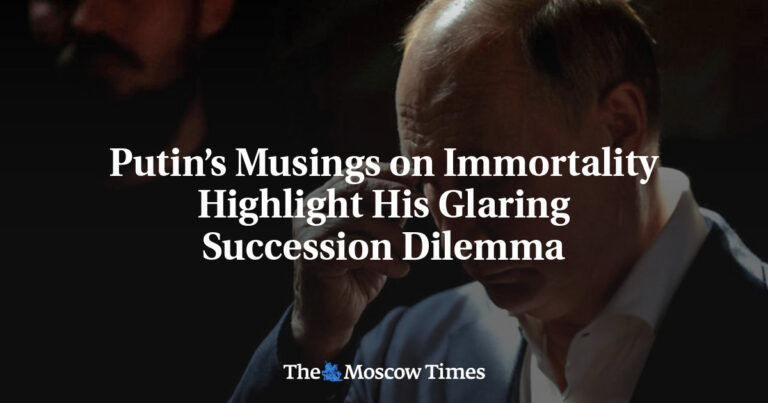Putin’s Mortality: A Glimpse into Russia’s Future Leadership
The aging leaders walked together, guiding a delegation of foreign dignitaries as they observed a grand military display in Beijing. During this event, a hot mic moment revealed an unexpected discussion between President Vladimir Putin and his Chinese counterpart, Xi Jinping, regarding the notion of extending human life.
Conversations on Life Extension
Putin’s translator was overheard saying, “Human organs can be continuously transplanted. The longer you live, the younger you become, and even achieve immortality.” This revealing exchange highlights an underlying anxiety for Putin: the question of what happens to his autocratic regime once he is no longer in power.
The Political Landscape in Russia
In his 25 years in power, Putin has crafted the Russian political scene to reflect his own vision. The United Russia party, which supports the Kremlin, dominates with 315 of 450 seats in the Duma. Elections are marred by claims of being neither free nor fair. Constitutional amendments enacted in 2020 enable Putin to retain presidential authority until 2036, when he will be 83 years old.
Challenges of Succession
Given these circumstances, analysts speculate that Putin is unlikely to step down voluntarily. Instead, the eventuality of his death or incapacity may trigger a political crisis, where a power vacuum might result in chaos among potential successors. Mikhail Mishustin, the current Prime Minister, would initially take the reins, but the succession plan remains unclear.
Potential Successors and Their Ages
Analysts note that many of Putin’s potential successors are also advanced in age. Figures like Defense Minister Andrei Belousov and former Security Council Secretary Nikolai Patrushev are frequently mentioned, yet the youngest among them is 66 years old. This raises questions about the vitality and adaptability of the next generation of Russian leadership.
The Emergence of Younger Leaders
Interestingly, there could be room for leaders from a younger generation who have recently risen through the ranks, particularly during the ongoing conflict in Ukraine. Names like Alexei Dyumin, a 53-year-old State Council secretary and former bodyguard to Putin, or Dmitry Patrushev, the 47-year-old deputy prime minister for agriculture, stand out as potential candidates who might uphold Putin’s governance style while not being encumbered by age.
The Uncertainties Ahead
The aftermath of Putin’s death could be unsettling. Historical precedents show Russia’s leadership can face significant turmoil during such transitions. As seen in 2023 when Wagner Group leader Yevgeny Prigozhin attempted a military coup, the state appeared vulnerable and unsure in its response. Scholars warn that any swift change in leadership could evoke similar unpredictability in the public and governmental responses.
The Future of Russia’s Governance
Ultimately, many experts agree that the prospects for a democratic Russia following Putin are grim. Despite the ambitions of democratic opposition groups, they have been largely marginalized, making any significant political shift unlikely. For Putin, his legacy—shaped by conflicts and his stance against the West—may provide a sense of continuity or even a form of immortality as he seeks to cement his place in history.
